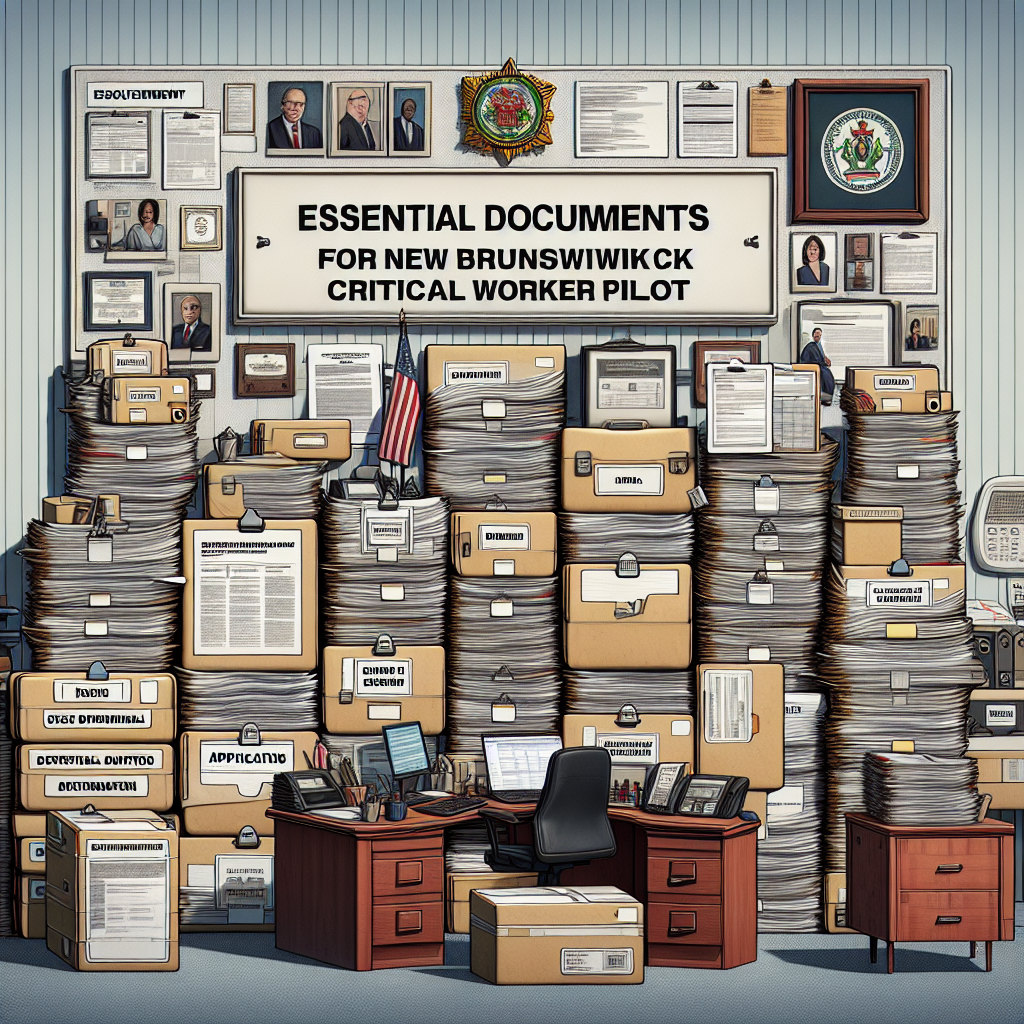Essential Documents for New Brunswick Critical Worker Pilot

The New Brunswick Critical Worker Pilot (NBCWP) represents a unique opportunity for skilled foreign workers to establish themselves in Canada with a clear path to permanent residency. This employer-driven initiative is not just about filling roles but about integrating committed workers into the fabric of New Brunswick’s communities. However, the success of an application hinges heavily on meticulous preparation and documentation.
Key Application Requirements for Applicants:
-
Identification and Personal Documents: A valid passport and birth certificate, translated into English or French if necessary, form the backbone of your application. These documents confirm your identity and eligibility.
-
Educational Credentials: At a minimum, a high school diploma is required. Additional vocational or college certificates, especially if earned outside Canada, need an Educational Credential Assessment (ECA) to verify their equivalence.
-
Language Proficiency: Demonstrating language skills through recognized tests like IELTS, CELPIP, or TEF is crucial. In some cases, an employer can provide an attestation of language proficiency for specific job roles.
-
Work Experience: Applicants must provide detailed experience letters, pay slips, or contracts to substantiate their employment history and the relevance of their skills.
-
Job Offer: A signed offer letter from a participating New Brunswick employer is essential. The letter must clearly outline job details, including title, wage, hours, and duties.
- Settlement Plan: A comprehensive settlement plan is necessary to outline how you intend to integrate into New Brunswick society, covering aspects such as housing and community involvement.
Employer’s Role:
Employers are not just offering jobs but are critical partners in the settlement process. They must provide:
-
Employer Attestation: This confirms the genuineness of the job offer and workplace readiness. It can also substitute for formal language proof if adequate workplace communication is demonstrated.
- Settlement Support Plan: Employers need to detail the support they will offer for the newcomer’s integration, including housing, orientation, and job training.
Mandatory Documentation and Tips:
Both applicants and employers must ensure all required forms accompany the application. Key forms include the Consent and Declaration, the Use of Representative, and relevant declarations for common-law unions or minors.
Insights:
The NBCWP is a strategic response to labor shortages and aims to foster sustainable growth in New Brunswick. By focusing on both employment and community integration, the program ensures that newcomers and their families can build a future in a welcoming environment. For applicants, understanding the dual focus on job readiness and community integration is essential. For employers, offering robust settlement support is not just beneficial for the employee but enriches the community and workforce diversity.
In preparation, applicants should double-check all documents for accuracy, ensure translations are certified, and keep digital copies ready for submission. Employers and applicants alike should recognize the mutual benefits of this program, which extends beyond individual gain to broader community enrichment.



